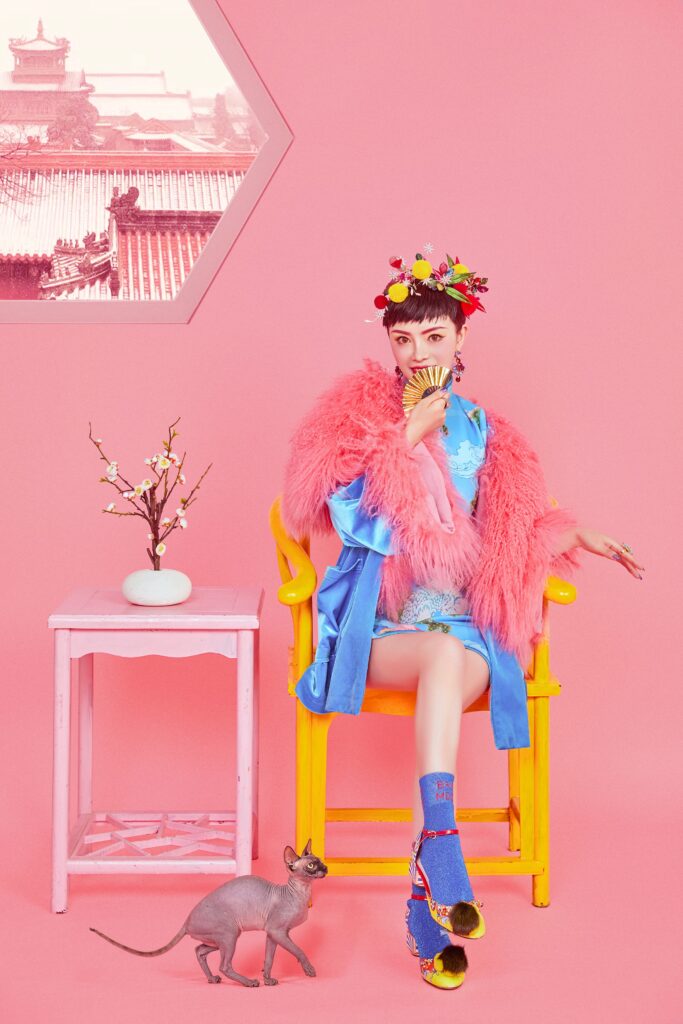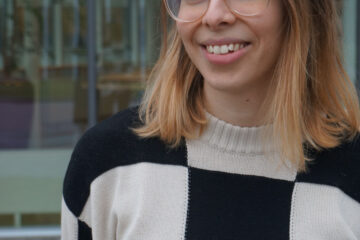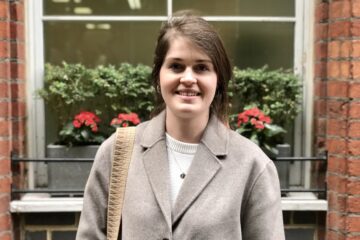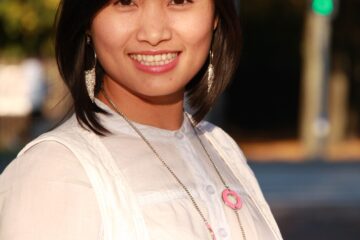Xiping Huang

Xiping Huang was born in China in 1988 when the country was still in its planned economic era. Even though both her parents were medical doctors, the living standard for Xiping and her family was low. Her father was one of the first batches of university students after the cultural revolution and her mother was in the second. They both shared an ambition to give their daughter a higher education of some sort. However, that it would be within engineering took many years to figure out.
Although when she was little, the family invested a lot of energy and time in keeping her technology interest strong. In 1996-97, despite how unusual it was to have a computer in the home, Xiping’s mother saved up some months’ of salary into buying Xiping her first personal computer. “Normally, men were driving the tech investment in the family in China, but in my case, it was my brave and tech-curious mother.” A year later they got internet access. Cyber bars started popping up in the city, initiated by the government, and Xiping’s mother took her there sometimes. She was amazed by the sudden possibility to visit American websites, without at the time knowing any English. “Technology can really change everything, I thought. I used to send handwritten letters to my cousin in Canada, but we soon started to write emails to each other.”
By the end of the ‘90s, China experienced a concentrated technology leap and became extremely developed during a 5-10 year period. It happened particularly fast in comparison with other parts of the world. Xiping, as being in her early teens and experiencing all of this in such an influential period in life, felt an overwhelming transition. At the same time as her family bought their first computer, they also got their first home phone. One year later, they got their first cell phone. She remembers the shock when her father’s first huge cell phone was replaced when her mother bought a tiny Nokia variant in 1998.
Despite Xiping’s curiosity in technology, she didn’t consider engineering until high school. That was the first time she understood that engineering is not about inventing new technology but using already found technologies to make practical solutions. This insight struck her on a particular occasion when she was impressed by the design of a packaging solution for newly bought furniture.

The next step towards the engineering field happened when she met her mother’s best friend’s husband at an afternoon tea session. He told her about his job as an architect, which caught Xiping’s attention as it connected to her interest in painting. It inspired her to the extent that she decided to apply for architecture, urban planning, and landscape planning at Tongji University in Shanghai. In 2007 however, in the province she lived in, there were around 500 000 applicants to the university that year and only 3 spots to her applied field. She didn’t get enrolled, so the university simply shifted her over to a spot where there was a vacancy. That’s how Xiping ended up in automotive engineering.

In the beginning, she hated it. As an architect, she would have been able to be creative and not have to study subjects she didn’t like, such as mathematics and physics. Now, it turned into the opposite and the struggle was real. In parallel with her studies, she looked into what was trending at the time. She built her own website as a hobby and applied for internships at small internet consultancy companies to learn more about what was happening within the internet industry. Her assignment was to write articles about which phones were best. She got to play around a lot with many different devices. Looking back, she realized that this was when the foundation was set for her interest in software, application, and user experience.
Around this time, the first iPhone was introduced and she got a 3GS. She was amazed by the whole thing, how it was introduced and how it changed people’s behavior.
One day, when Xiping was coming to the end of her studies, she was taking the train to her best friend’s wedding in Hefei, a city a few hours west of Shanghai. Her boyfriend missed the train, so she ended up sitting by herself and tried to make use of the time by catching up on some school reading. Opposite her in the train compartment was a man who suddenly started talking to her. He was curious and asked why a girl like her was reading an automotive-related topic. Xiping explained that it was her university subject. “Do you mind if we speak English?”, he continued and mentioned that he was looking for an intern for his company. “Have you heard about Volvo Cars?” It turned out that the man was a purchase manager at the company and offered Xiping the chance to apply for a position. “Can I stay after the internship?”, Xiping asked? “No, we don’t hire inexperienced purchasers”, was the reply. “Then I’m not interested, thank you”, she said as graduation was coming up and she was focused on securing her first job. “There is a chance to stay as an R&D intern, however, if that could interest you?”, he replied. “That sounds great!”
She was introduced to the manager on chassis and active safety. In February 2012, she got the interview and started her internship shortly after. Now, her interest completely shifted from software to hardware. In school, they seldom got the chance to implement the theories they were taught. “I had never actually used my engineering knowledge before, but after three months as an intern, I had experienced a constant flow of rewards from applying my knowledge in practice. I was solving problems every day. It was like getting kicks of dopamine all the time.”
Although learning to appreciate the hardware part of engineering, Xiping still enjoyed the software side as well. After some time, she mentioned this to her manager and was able to start steering herself towards software again. “Software is the industry that provides absolutely no difference between men and women.”, Xiping reflects and continues that software is simply the human brain made as a machine, without masculine aspects such as physical power like other types of engineering fields are much about. “I am no coder myself, but I understand how software is developed”, she explains and continues about different engineering directions. “You can either go broad or deep. With a broad focus, you can link two domains that haven’t had a connection before and thereby create completely new solutions. Super experts are important, but so are the broad ones.”
Xiping’s re-connection with the software side came about when she worked with the car seat. “The seat”, she explains, “is one of the more complicated parts of a car, as it is so near the user. Everyone will always have an opinion about it and it links to both mechanical aspects as well as software.”
Today, Xiping has a role called business developer zero collision in the Product creation department, with a focus on passive and active safety. Her job is to identify new ideas and drive them through. Passive safety can for example be a solution that the car has to protect its passengers in the event of a crash. Active safety is typically about how to prevent the crash from happening at all. An example of that could be a solution that detects activity that the driver cannot see due to its blind spot.
“I am super excited about this role”, Xiping continues. “There are so many great innovative ideas, but how do we grasp them and apply them in ways that have both the user’s, the company’s and the society’s best in mind?”. As an engineer, Xiping can understand the restraints when searching for a solution, and the answer can never be disconnected from the engineering considerations. Her engineering background makes her stay realistic when she focuses on meeting these three interest groups in the smartest possible way.
Xiping ends the interview with a few wise words about what engineering is, and is not. “Engineers are not scientists. They don’t define the boundaries, they use the boundaries to reach maximum output. And it is seldom one person’s work, but rather a team effort. That feeling “we nailed it!” is just priceless”.
“Curiosity is my best teacher!“
A final question must also be asked; what does Xiping want to share with the participants at this year’s IGEday? “At IGEday, I want to tell the girls to first of all always stay curious. It’s the best teacher. The second thing is that engineering is not about fancy technologies and launching rockets to space. Have a look at a moving box! It is endurant to the weight, easy to carry, convenient to store, and after usage it can be recovered almost into its origin. Start to observe things around you, and you will be amazed about how much value clever engineering solutions are bringing to us every day.”



0 Comments